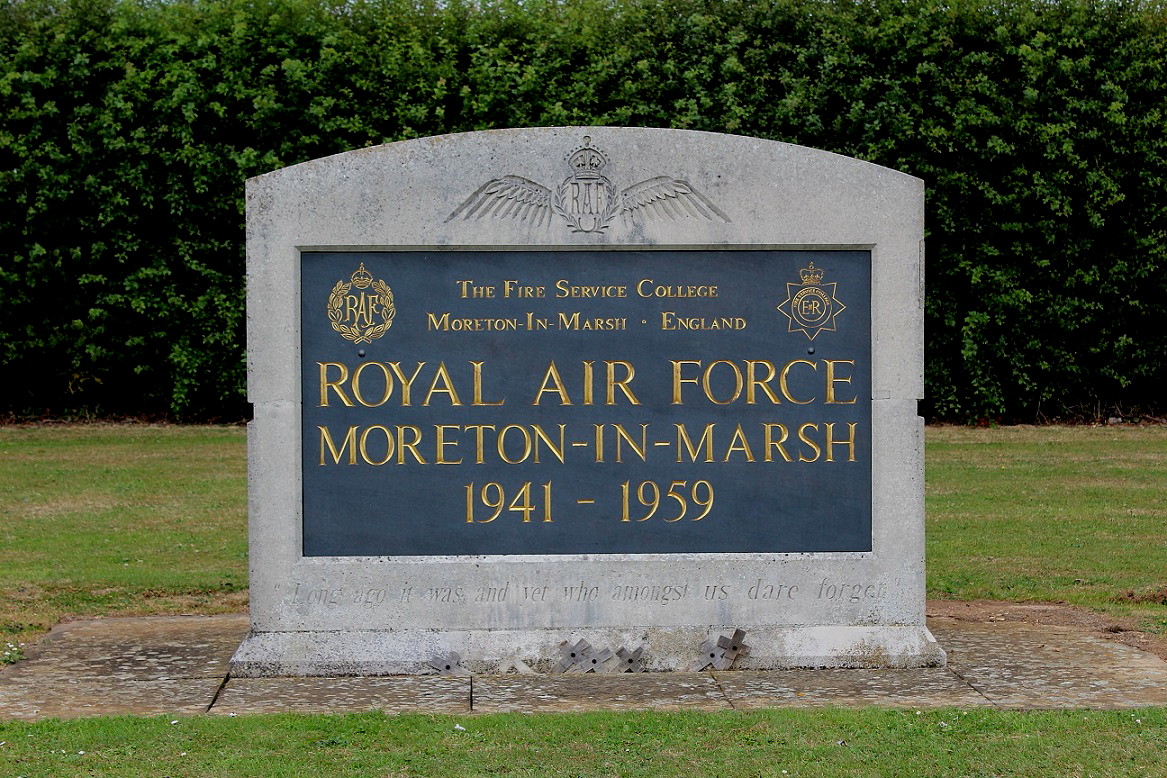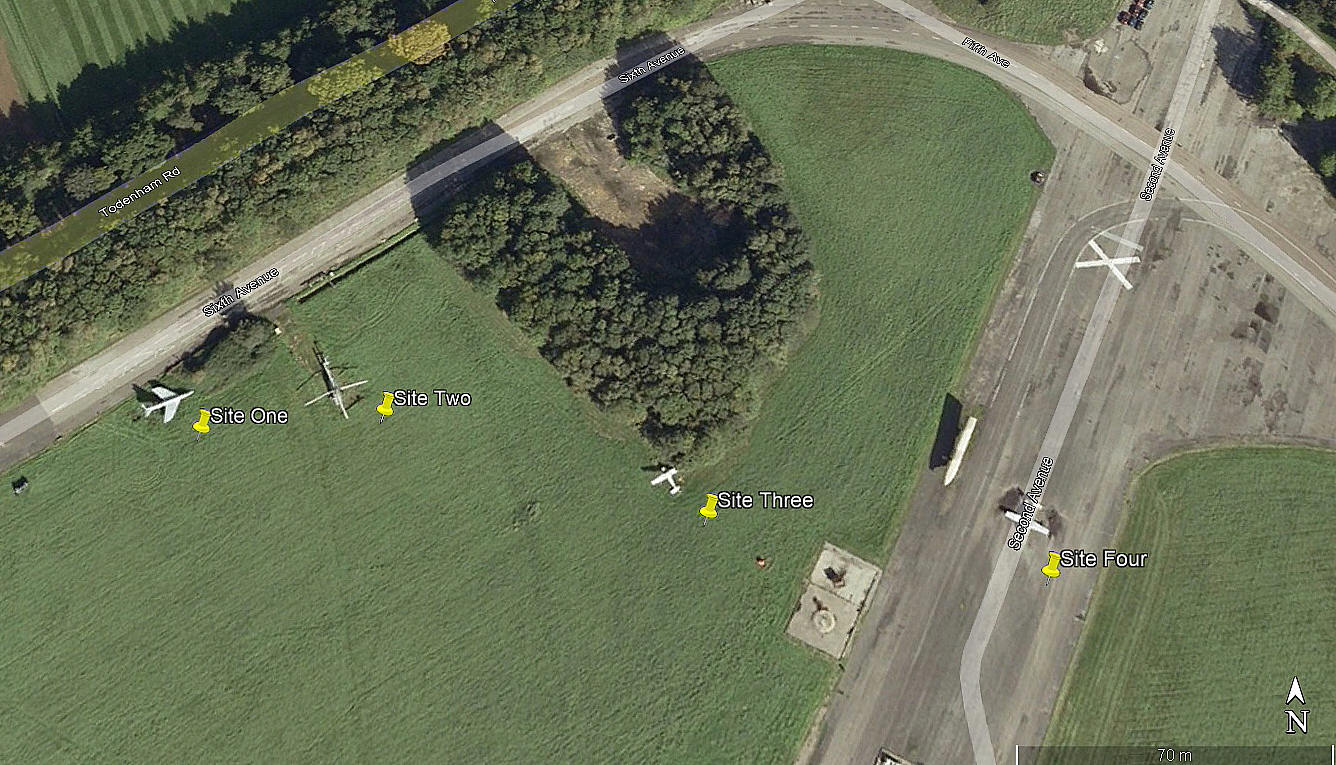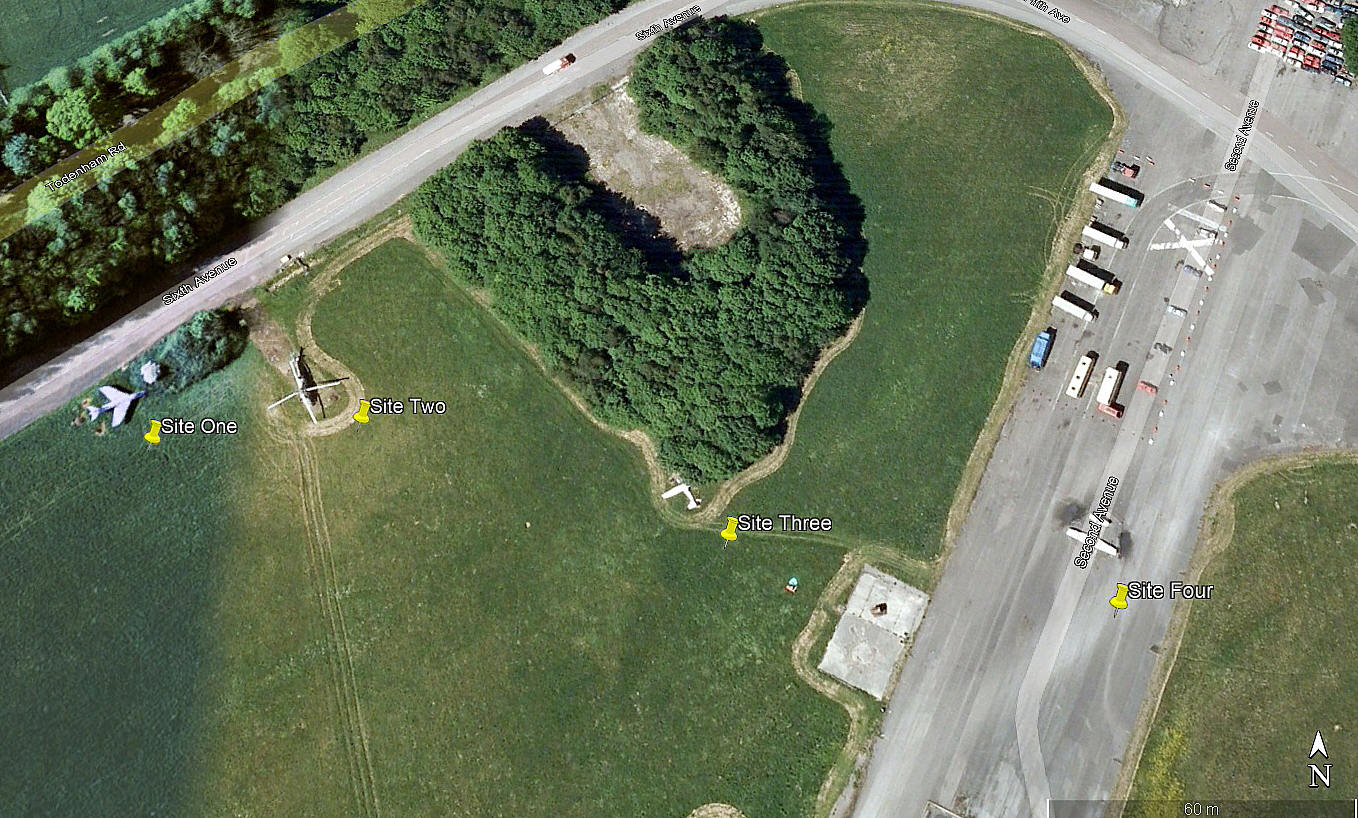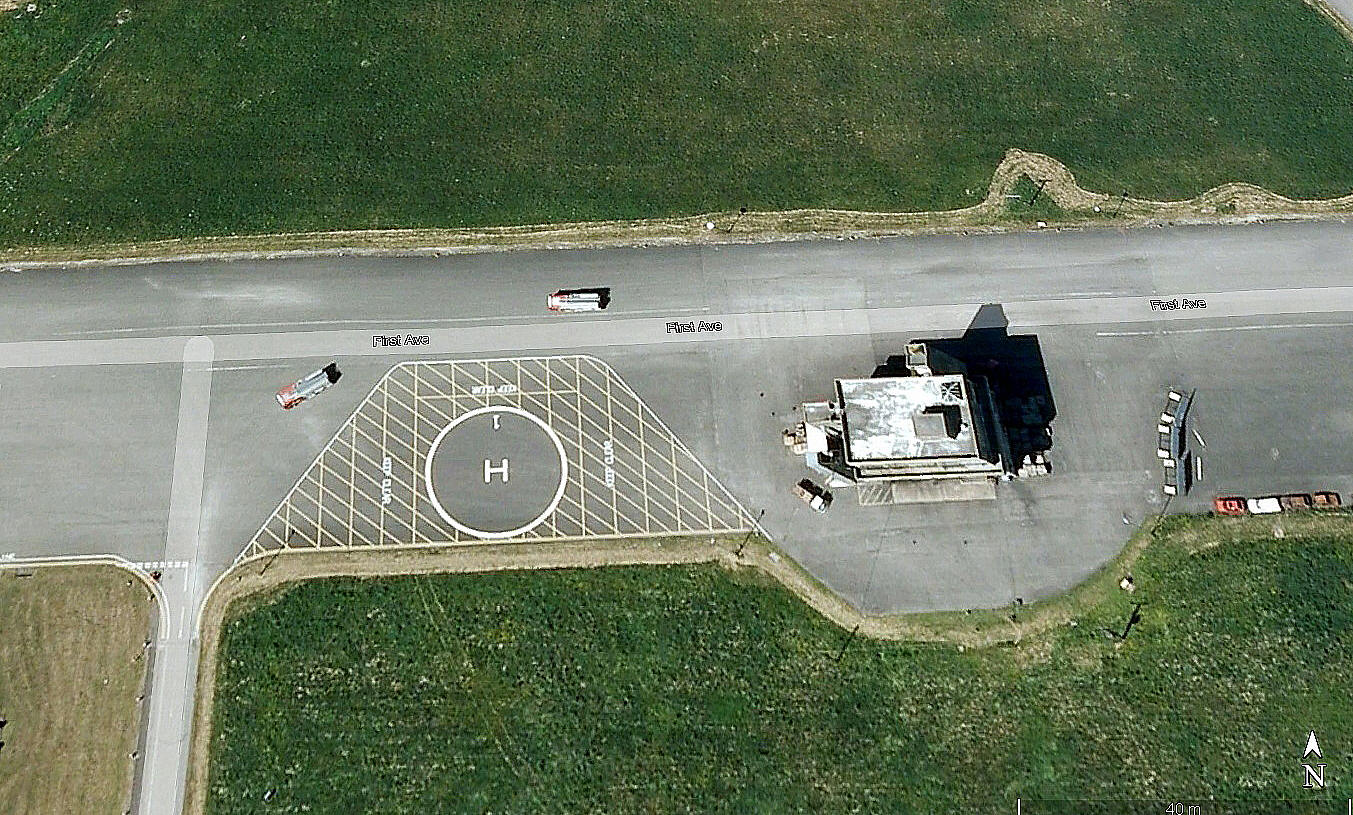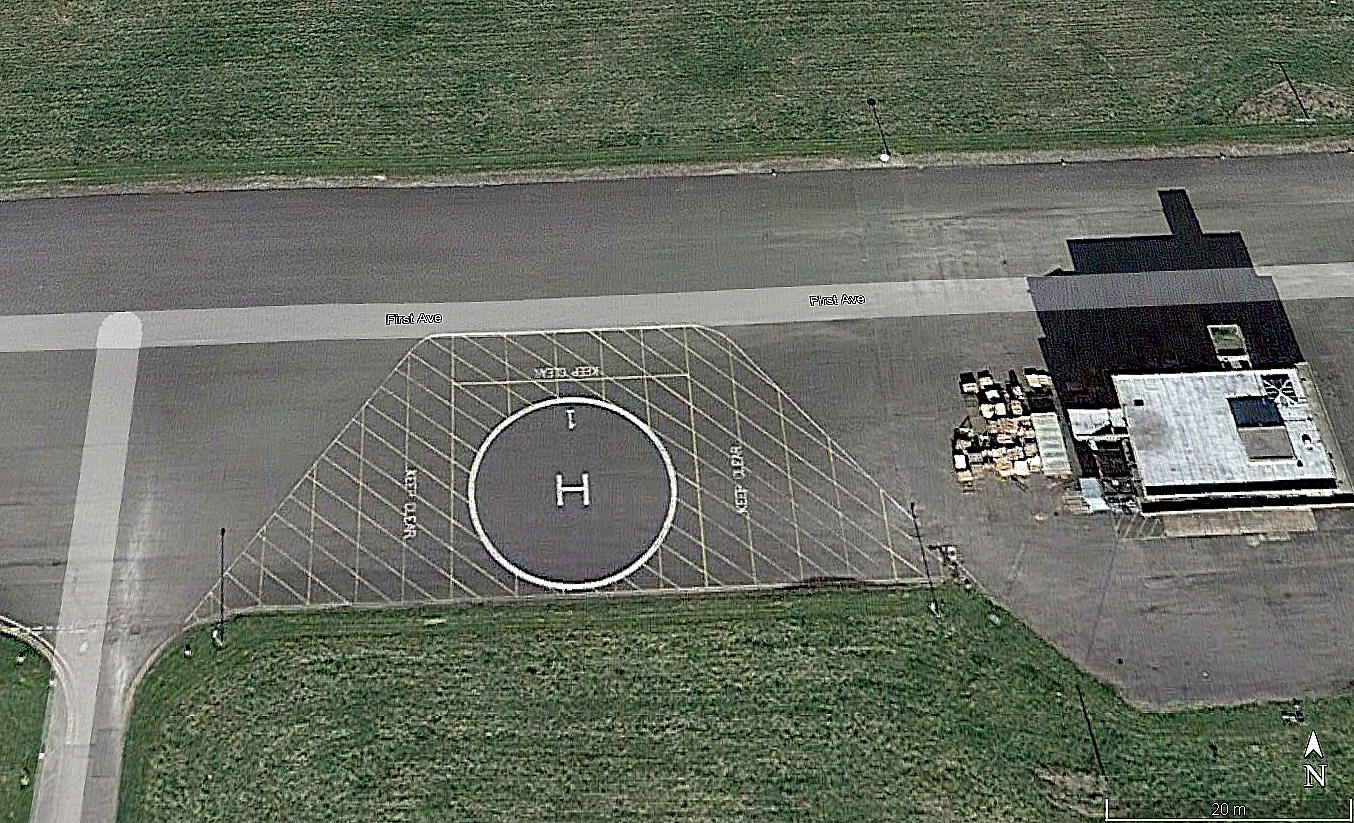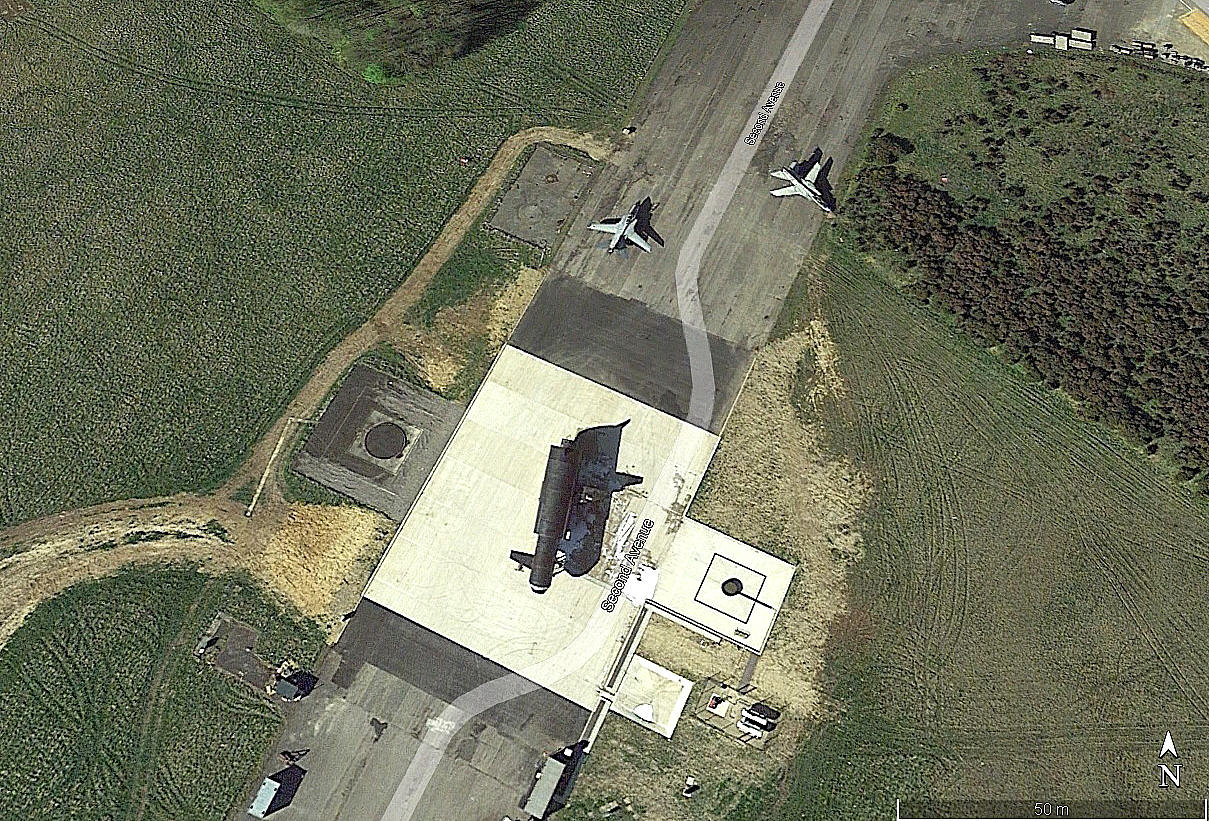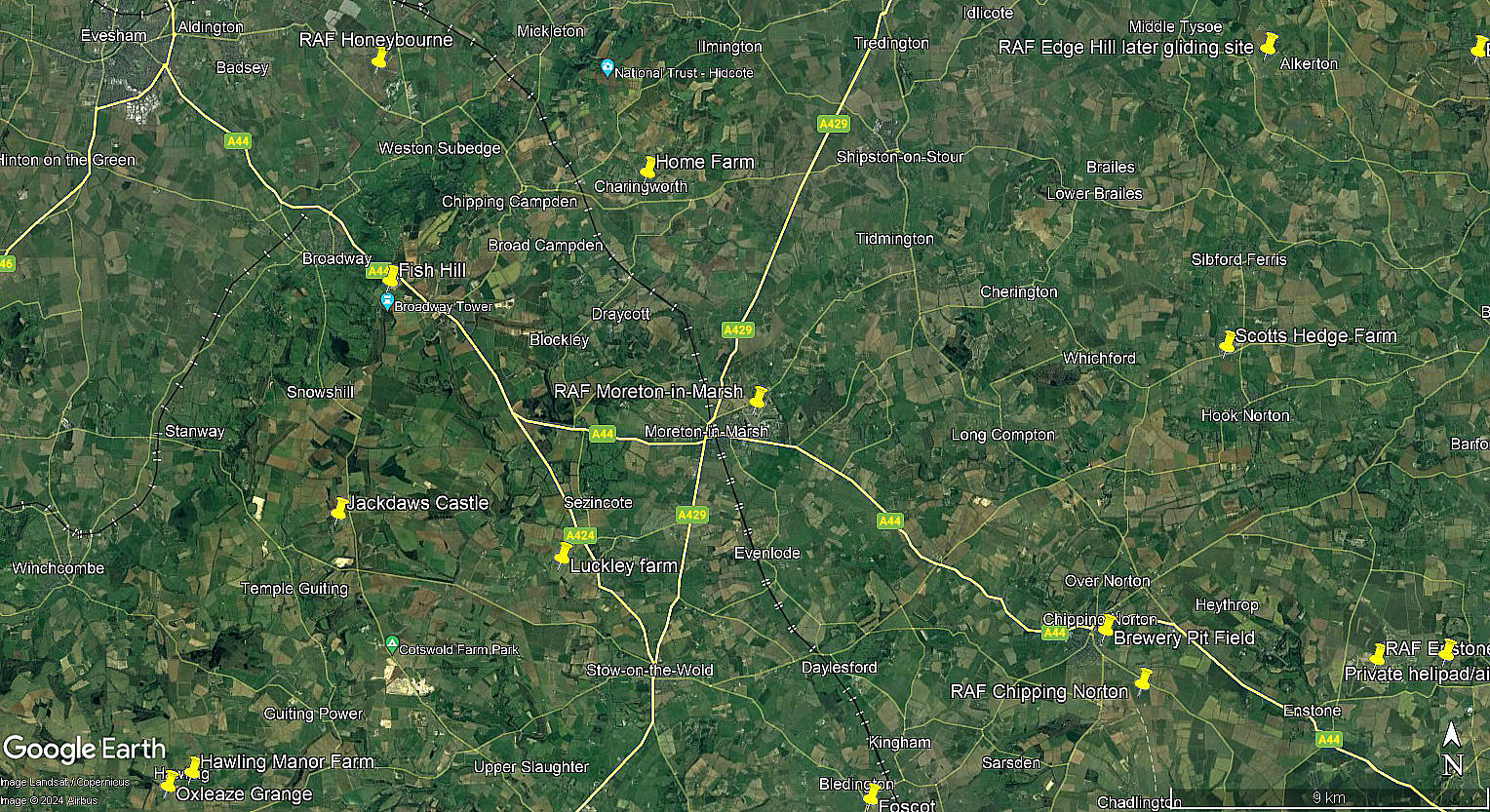Moreton-in-Marsh
MORETON-in-MARSH: Military aerodrome
Notes: Picture by the author taken in August 2015 of the memorial which was dedicated in 1994.
Military users: WW2: RAF Bomber Command 91 Group
WW2: 21 OTU (Operatonal Training Unit) (Vickers Wellingtons)
Postwar: 1 FTS (Flying Training School) (Percival Prentice & North American T-6 Harvard)
Location: N of A44, 0.5nm NE of Moreton-in-Marsh, 13nm S of Stratford-on-Avon
Period of operation: 1941 to 1955
Runways: 15/33 1006x46 hard 03/21 1463x46 hard
09/27 1006x46 hard
NOTES: There is a very important aspect about Operational Training Units during WW2 which is rarely mentioned, although I have banged on about it elsewhere in this 'Guide'. And this is the accident rate. To quote from Max Hastings most excellent book Bomber Command, "5,327 officers and men were killed and a further 3,113 injured in RAF training accidents, 1939 - 45.
To expand: "The accident rate at OTUs was appalling. Some courses lost as many 25 per cent of their trainees before graduation four or five months after arrival. Tour-expired aircrew posted to instruct rapidly learned that flying pupils in tired and often under-maintained bombers was anything but a rest-cure. But at least men were learning new tactical and technical skills at OTU that a year before they were compelled to teach themselves over Germany."
Up until August 2017 I had this posted: It appears that operational flying commenced in November 1940 and ceased in 1948. Thereafter the site was available as a relief runway and open for use during training exercises.
Little did I know! In August 2017 (see 'Comment' below) I was kindly contacted by Hector Munro. It must be pointed out that until Hector got in touch I did not have 1 FTS listed as being here, or at EDGE HILL which was a satellite for MORETON.
MORETON-in-MARSH has since been used as a national Fire Service training base for at least thirty years? A friend who was in the Fire Service and on a course at Moreton-in-Marsh many years ago told me that USAF jets, (Phantoms he thought), presumably on low level radar detection avoidance exercises, often passed across the Fire Service base at high speed and sometimes below the level of the towers used for ladder drills. Now then, that’s low!
A PERSONAL MEMORY
When doing my navigation exam, for a Private Pilots License from WYCOMBE AIR PARK, MORETON-in-MARSH was the first major waypoint. This was where we descended to the low-level flying part of the exam in June 1989. Didn't have much time to look around but cannot recall seeing any aircraft.
SOME MORE RECENT PICTURES FROM GOOGLE EARTH ©
In July 2024 Mr Graham Frost, a great friend of this 'Guide', suggested that I might like to have a look at Google Earth. Am glad that I did because there a quite a few aircraft dotted around, presumably for the purpose of training fire fighters in a variety of different scenarios.
Most of these aircraft, presumably real aircraft (?), have since been moved. If anybody can kindly offer advice, this will be most welcome.
This was a surprise. A helipad laid out with comprehensive ground markings indicative of, for example, many recent hospital helipads. In 2024 appearing to be no longer used (?), has this facility actually been used by visiting helicopters?
Hector Munro
This comment was written on: 2017-08-23 09:14:36Moreton-in-Marsh was the home of No. 1 FTS for several years; I did my flying training on the Prentice and Harvard between Dec. '53 and Oct. '54. My first solo was flown from Edgehill, now Shenington, which was the Moreton-in-Marsh satellite airfield. I like your site, well done
Reply from Dick Flute:
Hi Hector, Many thanks for the memory and kind comments. Best regards, Dick
Chris Morgan
This comment was written on: 2019-12-26 09:24:32Hi, chatting with my mother (88yrs) she told me about two of her uncles Harry and Fred Dadd who, because they were builders, didn’t get called up at the beginning of the war. Instead they were first used to build pill boxes and other defenses here in East Kent (there is one still in place at the north end of Deal) and then stationed at Moreton-in-Marsh repairing(?) the air base.
Michael Dobson
This comment was written on: 2020-11-21 14:11:34Doing National Service as a Meteorologist in the RAF I served in the Met Office at Moreton in Marsh for a year from March 1952. As No. 1 FTS it was equipped with Harvards and Prentices. As the solitary occupant of the remote control tower at 4.30 a.m. getting the f"weather " ready for briefing at 7.30. I often heard the footsteps of the ghost of the WAAF who was said to have committed suicide there during the war. So did other colleagues!
We'd love to hear from you, so please scroll down to leave a comment!
Leave a comment ...
Copyright (c) UK Airfield Guide














